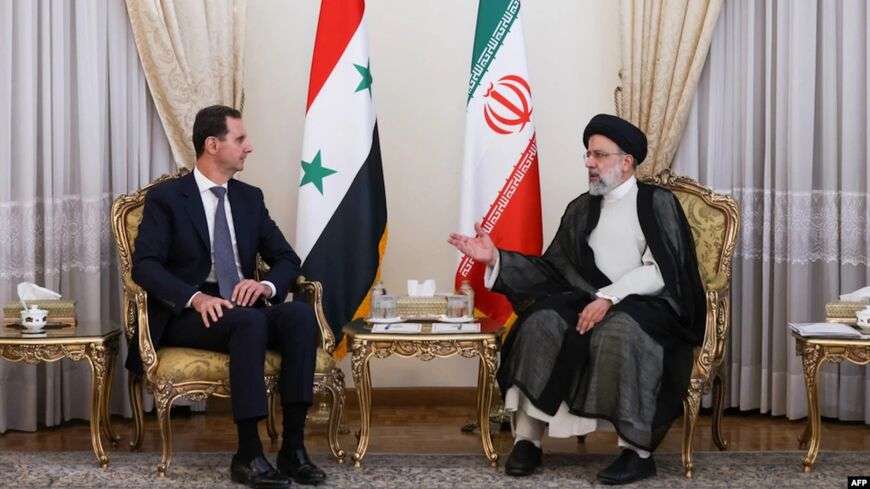As a symbol of its “strategic victory” in regional affairs, Iranian President Ebrahim Raisi has arrived in Syria and is scheduled to meet with President Bashar al-Assad. For the first time in 13 years, an Iranian president made a state visit to Syria as Raisi arrived in Damascus for a two-day visit.
He was accompanied by his ministers of foreign affairs, roads and urban development, petroleum and economic affairs and Iran’s central bank chief.

Raisi’s deputy for political affairs, Mohammad Jamshidi, disclosed that, prior to the departure, the visit has been considered as a sign of “the Islamic Republic of Iran’s strategic victory in the region”.
Tehran has positioned itself to have a larger grip in the country’s economic destiny after backing al-Assad throughout the Syrian civil war, intending to increase commerce and secure a point of entry for its state and private firms.
Jamshidi also brought up the United States’ “maximum pressure” strategy, which was implemented in 2018 following Washington’s unilateral withdrawal from the 2015 nuclear agreement between Iran and six other powers and the reimposition of sanctions on Tehran.
After rivals Iran and Saudi Arabia agreed to reestablish diplomatic ties with Chinese mediation, Jamshidi added, the same Arab countries that backed Iran’s isolation are now realigning and getting ready to welcome Syria back into the Arab fold.
He said, this development affirms the failure of U.S policies in the region. Iran and Syria are expected to sign several agreements, during Raisi’s visit, some of which are centered around exploiting and expanding economic cooperation between the two countries. Ebrahim Raisi arrived a day after Israel launched air raids targeting the international airport in the northern Syrian city of Aleppo, killing one soldier and putting the airport out of commission.
Rising Influence Of Iran In The Middle East

Israel has pledged to counter the spread of Iranian influence in its neighbors, and in recent months, it has launched a large number of attacks on government-controlled parts of Syria.
At least 20 individuals were killed in airstrikes in March between troops in Syria that were supported by the US and Iran. Tehran is still in favor of al-Assad’s stance that US troops must leave the nation; Washington claims it entered the country to battle ISIL.
Even before the Syrian revolt started in 2011, President Bashir al-Assad has long been a target of Western powers. Due to Assad’s ferocious resistance, the West has made numerous attempts to overthrow his government without success, and Terran has played a critical role in the maintenance of Assad in power.
Whiles U.S and Israel backed rival Syrian forces with logistics to fight Assad’s regime, Terran and Moscow had have Assad’s back since the uprising.
READ ALSO:Lebanon Cracks Down On Syrian Refugees


















